Conversations on Gifted Trauma Podcast
hosted by Jennifer Harvey Sallin - psychologist & InterGifted's founding director
What is "Gifted trauma"? It's the trauma that gifted people can experience if they feel ridiculed, ignored, rejected, misunderstood, out-of-place, left out or left behind, pressured to conform, or excessively groomed or exploited as a result of their unusual minds. Gifted people's experiences of other non-gifted specific traumas are also unique, as their heightened mental and often emotional intensity and complexity bring so many extra questions to the "unanswerable why" of trauma.
Healing the fragmentation, confusion and loss of connection to self and others that result from trauma and gifted-specific trauma is a necessary part of the journey back to wholeness and thriving as a gifted adult. InterGifted's founding director Jennifer Harvey Sallin explores the gifted healing journey with fellow gifted-specific psychologists and helping professionals in this podcast. We explore specific topics such as shame, the body, needs, boundaries, mental health, connection, resilience, collective and intergenerational healing, and more...
Listen below, on Spotify, or wherever you listen to podcasts. You'll find our updated episode notes & resource lists below.
HERE'S WHAT OUR LISTENERS SAY!
I feel seen; my own experiences have been 100% validated
From the first episode, I was blown away. I have never heard such a candid conversation on this topic. (Why is this taboo?) The powerful honesty, vulnerability, and authenticity of the hosts bring a sensitivity to the topic that can only be realized through personal life experiences, high expertise, and focused study. I am working my way through all the episodes—this is life-changing.
There is no other podcast like this. Each and every episode is an absolute gem.
This material has been so core to my giftedness rediscovery and integration journey. I am extremely grateful to Jennifer and her guests for putting this content out into the world. Thank you so much. It’s changed my life.
This show changed my life
I thought it was all in my head until hearing this show. It’s been a real game changer for me and I really appreciate the creators making it.
Great show on an important topic!
There are way too few podcasts out there on giftedness especially as it applies to adults! This show dives deep into supporting adults with unmet gifted needs throughout the lifespan.
Conversation 1:
HEALING GIFTED SHAME
In episode 1, Jennifer Harvey Sallin & Karin Eglinton explore what gifted trauma is, as well as the shame gifted people often feel for carrying their usually unidentified gifted traumas. Links and resources mentioned are:
-
-
- Stephen Porges' Polyvagal Theory
-
Conversation 2:
HEALING THROUGH (GIFTED) CONNECTION
In episode 2, Jennifer Harvey Sallin & Karin Eglinton explore what we need in terms of gifted-specific understanding and mirroring to begin to heal from our gifted-specific traumas. Links and resources mentioned are:
-
-
- InterGifted's community
- HEPG group
- John Cacioppo’s work on loneliness
- Gifted Coaching & Mentoring
- The Gifted Adult, by Mary-Elaine Jacobson
- Giftedness Assessments
- InterGifted's Blog
- Wheel of Consent, by Betty Martin
- Pete Walker's Complex-PTSD book
- Pete Walker’s website
- Out of the Fog website & top 100 traits
- Living with Intensity, by Susan Daniels & Michael Piechowski
- Embracing the Gifted Quest
- Being Me
- Please note that we are no longer offering therapy searches or Karin's Wholeness-Based Relating course (both featured in this episode)
-
Conversation 3:
GIFTED TRAUMA & THE BODY
In episode 3, Jennifer Harvey Sallin & Karin Eglinton venture into into the often underexplored territory of the relationship between (gifted) trauma and our bodies. It is a complex and sometimes daunting relationship, but also rich and hopeful in terms of the doors for healing that open through body-based approaches. Links and resources mentioned are:
-
-
-
The Body Keeps the Score, by Bessel van der Kolk
-
Healing Developmental Trauma, by Laurence Heller and Aline LaPierre
-
Conversation 4:
GIFTED NEEDS & SYMBOLISM
In episode 4, Jennifer Harvey Sallin & Karin Eglinton explore our knowledge (and lack thereof) of our gifted-specific needs. To do so, we explore how in response to gifted-specific trauma, we often use symbols to represent ourselves to ourselves, and thus we get distanced from a present-moment awareness of our gifted-specific needs. It's a negative feedback-loop, and here we explore how it happens, and how to exit the loop and become aware of and dynamically responsive to your own gifted needs. Links and resources mentioned are:
-
-
-
Giftedness & Authenticity, by Silver Huang
- Gifted Adults & Second Childhoods: Revisiting Essential Stages of Development, by Jennifer Harvey Sallin
- Book: Giftedness and Invisible Disability
- Workshop: Legitimizing Your Gifted Needs
- Kelly Pryde's Embodied Mindfulness for Gifted People Course
- Marion Kee's Multipotentialites Group Course
- Please note we no longer have our adolescents' group (featured in this episode); teens 16 years old and up are welcome to join our main group
-
-
Conversation 5:
GIFTED TRAUMA & THE CLIMATE EMERGENCY
In episode 5, Jennifer Harvey Sallin & Karin Eglinton venture into an exploration of how gifted trauma predisposes us to strong and painful - and sometimes debilitating - reactions to the climate emergency. Karin shares her personal story of how she was affected by this and worked through it, and we explore together what a gifted person can do now to heal from the inside as well as contribute to the healing of the planet. It is a raw and real, and honest and hopeful conversation. Links and resources mentioned are:
-
-
- I Heart Earth
- Gifted Mindfulness Collective
- Gifted Coaching & Mentoring
- Eric Windhorst - ecotherapy and coaching
- Please note that we no longer offer the therapy search service or the Wholeness Based Relating Course (as featured in this episode)
-
Conversation 6:
HEALTHY BOUNDARIES, PART 1 -- CULTIVATING ALIVENESS
In episode 6, Jennifer Harvey Sallin & Karin Eglinton explore an essential topic to gifted relating and gifted trauma: cultivating healthy boundaries. Specifically, we explore the roles of aliveness, coherence, and organization in helping us create sustainable relationships with our gifted and non-gifted peers. In this discussion, we especially focus on our quality of aliveness; what it means and how it can become distorted through trauma, as well as how to (re)learn to cherish and value our aliveness and use it actively as a solid foundation for cultivating healthy boundaries. This is part 1 of 3. Links and resources mentioned are:
-
-
- I Heart Earth
- Ecological Intelligence & Ecological Giftedness, by Jennifer Harvey Sallin
- The work of the Heart Math Institute
- Emotions & Carried Emotions, by Jennifer Harvey Sallin
- The work of Dr. Rick Hanson on re-wiring your nervous system to "take in the good"
-
Conversation 7:
HEALTHY BOUNDARIES, PART 2 -- CULTIVATING COHERENCE
In episode 7, Jennifer Harvey Sallin & Karin Eglinton continue our exploration on cultivating healthy boundaries by looking deeply at individual, social and collective coherence and its role in helping us to be generative and boundaried adults. This is one of our longer episodes, and it reflects the importance of this topic in our world of quickly compiling and accelerating crises and conflicts. This is part 2 of 3. Links and resources mentioned are:
-
-
- Conversation 6: Healthy Boundaries, Part 1: Cultivating Aliveness
- Our Inner Fire of Aliveness: Gifted Expression, by Karin Eglinton
- The work of Katie Bowman
- Living with Intensity: Giftedness and Self-Actualization, by Jennifer Harvey Sallin
- Robert Greene's Mastery
- How Gifted People Can Reach Mastery: The Gifted Coaching Process, by Jennifer Harvey Sallin
- Minimum Viable Product (Lean Startup Movement)
- Simon Sinek on finding your "Why": How Great Leaders Inspire Action
- Polyvagal Theory
- Eric Berne's Games People Play (Parent - Adult - Child)
- Transactional Analysis
-
Conversation 8:
HEALTHY BOUNDARIES, PART 3 -- CULTIVATING INNER ORGANIZATION
In episode 8, Jennifer Harvey Sallin & Karin Eglinton conclude their three-part episode series on healthy boundaries by exploring the cultivation of inner organization. Particularly important in this discussion are educational trauma and various dominant ideologies which, when unnamed and unnoticed, make it difficult for us to show up in the world in an organized, generative and well-boundaried manner. We explore the process of self-reeducation and unlearning that many of us must commit to in order to recover our inner organization, employ healthy boundaries, and inhabit our place and role in the current world.
Links and resources mentioned are:
-
-
- Rewilding Journeys, live talk with Jennifer Harvey Sallin & Karin Eglinton
- Winning is Healing, Paul Linden
- Responding to our Changing World -- A Course for Gifted Leaders, with Jennifer Harvey Sallin
- Emergence Compilation, with Kelly Pryde
- Karin's blog Mermaid Forest
- Being Gifted in a Changing World, by Karin Eglinton (not mentioned in the episode, but related and relevant to the discussion)
- We no longer offer the Resourcing Workshop featured in the episode
-
Conversation 9:
GIFTEDNESS & OUR INNER AND OUTER NATURE, with Eric Windhorst
In episode 9, Jennifer Harvey Sallin and ecotherapist & coach Eric Windhorst explore our gifted connection to our inner & outer nature, as well as to fundamental consciousness. When fragmentation caused by trauma keeps parts of us disconnected from what is true within us and around us, we can provide conditions to welcome the fragmented parts back home. Time in outer nature, compassionate attention to our inner nature, connection to fundamental consciousness, and importantly, support from loving people in our lives are the ingredients for healing and growth. Eric shares moving stories of clients' healing journeys, as well as deep insights for listeners on their own healing path.
You can learn more about Eric's work at www.ericwindhorst.ca.
Conversation 10:
GIFTEDNESS, LONELINESS & THE ART OF GIFTED CONNECTION, with Lotte van Lith
In episode 10, Jennifer Harvey Sallin talks with Dutch giftedness specialist, coach, lecturer, trainer and author Lotte van Lith. Jennifer & Lotte explore the types of loneliness a gifted person can experience, including intellectual, emotional, family, social, physical, existential, creative, physical and more. Giftedness is about exchange, and when we cannot share our giftedness, it can feel as though it isn’t real or doesn’t exist, and that can lead to feelings of deep isolation from humanity and from ourselves. Given our modern cultures have pushed us toward emotional disconnection and relational separation through restricted narratives about what life is, who we are, and what giftedness is, it is our work as gifted individuals to open up our minds and hearts to a broader understanding of ourselves, life, and our relationship to the various forms of intelligence that exist throughout the earth and beyond. The Art of Gifted Connection is, in other words, deep work that we do to become aware of, in humble awe of, and in grateful and generous communion with the complexity in and all around us - biologically, emotionally, philosophically, cosmologically.
Below you'll find the resources mentioned in our episode:
Lotte’s websites:
-
-
- A Lot of Complexity
- Lottevanlith.nl
- Lotte’s book Intens Mens
-
We recommend the work & writings of:
-
-
- Peter Wohlleben on trees, especially his book The Hidden Life of Trees
- Carlo Rovelli on quantum loop gravity (nature of reality), especially his book Reality is Not What it Seems
- Dan Siegel on the mind, especially his book Mind: A The Journey to the Heart of Being Human
- Terry Real on relationships & intergenerational trauma
- Gabor Maté on physical, emotional & relational health & collective trauma
- Jonice Webb on Childhood Emotional Neglect, especially her book Running on Empty
- Joanna Macy on the interconnected web of life
- Tich Naht Hahn on the interdependent web of life
- David Montgomery & Anne Biklé, especially the book Dirt: The Erosion of Civilizations
- Kiss The Ground, including their documentary of the same name
- Jeremy Lent, especially his books The Web of Meaning & The Patterning Instinct
- Jason Hickel, especially his books Less is More and The Divide
- Oded Galor, especially his book The Journey of Humanity
-
Conversation 11:
THE EFFECTS OF INTERGENERATIONAL & COLLECTIVE TRAUMA ON GIFTEDNESS, with Marc Smolowitz
In episode 11, Jennifer Harvey Sallin talks with The G Word Film director Marc Smolowitz on the topic of intergenerational and collective traumas, how they affect giftedness expression, and how we can find empowerment and healing. Marc was born into a family of holocaust survivors, came out as gay in his teens, lost countless friends during the height of the AIDS epidemic, and even nearly died of AIDS himself when he was in his 30's. These family-line, societal and personal traumas intersected with and affected Marc’s experience and expression of giftedness all along his life path, sometimes in very difficult ways and sometimes in very empowering ways. He shares his story with us, and how he has taken his various identities (some of which were born in trauma) and woven them together into resilient and rooted authenticity. He shares the role that community has played in his life, and how each of us has the opportunity to use the lives we’ve been born into and the adversity we face to ultimately strengthen our self-understanding, pride in our identities, and our meaningful connection to life and others.
Below you'll find the resources mentioned in our episode:
Marc's websites:
The work & writings of:
-
-
- Gabor Maté
- Terrence Real
- Thomas Hübl
- Mark Wolynn, especially his book, It Didn't Start with You
- Resma Menakem, especially his book My Grandmother's Hands
- Valerie Coppin, founder of the Intergenerational Trauma Treatment Model
-
Other resources
-
-
- Buried Above Ground film
- Biography coaching with Fabienne Wydler
- InterGifted's community
-
Conversation 12:
GIFTEDNESS, POSITIVE DISINTEGRATION & MENTAL HEALTH, with Christiane Wells
In episode 12, Jennifer Harvey Sallin talks with psychologist and founding president of The Dabrowski Center, Christiane Wells, on the topic of giftedness, positive disintegration and mental health. Chris became an expert on Dabrowski's Theory of Positive Disintegration after learning in her 30's how much the theory positively reframed her experiences as a child and young adult struggling with what she thought -- and was told by mainstream psychiatry -- were various mental illnesses. Through the frame of overexcitabilties and advanced personality development, Chris realized that the traits she had considered proof of her "brokenness" were actually full of developmental potential and gave her a unique and meaningful perspective on what life is and what makes it worth living. In addition to hearing Chris's story, Jennifer and Chris discuss the limits of mainstream views on mental health, the harm of normative stereotypes on gifted people, the differences between the intensity of overexcitabilities and the complexity of giftedness, how not all gifted people have overexcitabilities and not all overexcitable people are gifted, how gifted trauma and trauma from being overexcitable and misunderstood are different from each other, and advice and resources for listeners.
Below you'll find the resources mentioned in our episode:
-
-
- Christiane Wells' website
- The Dabrowski Center
- Positive Disintegration Podcast
- To contact Chris via email: chris@christianewells.com
- Discovering Your Highest Values, by Jennifer Harvey Sallin
- Living with Intensity: Giftedness & Self-Actualization, by Jennifer Harvey Sallin
- Living with Intensity: Understanding the Sensitivity, Excitability and Emotional Development of Gifted Children and Adults, edited by Michael Piechowski & Susan Daniels
- Mellow Out, They Say. If Only I Could. Intensities and Sensitivities of the Young and Bright, by Michael Piechowski
- Emma Nicholson's YouTube Channel: Adults with Overexcitabilities
- Emma Nicholson's blog: The Tragic Gift
-
Conversation 13:
TAKING LISTENERS' QUESTIONS ON GIFTED TRAUMA & HEALING, with Jennifer Harvey Sallin & Eva Bruchez
In episode 13, Jennifer Harvey Sallin and Eva Bruchez take listeners’ questions on healing from gifted trauma. They explore the role of “little t” trauma in the life of a gifted person, the long-term effects of childhood emotional neglect (including a lack of loving touch), and the complications of narcissistic parenting on gifted children in developing a strong sense of self in the world. They also discuss the sense of imprisonment gifted people can feel when they’re constrained to the neuronormative box, as well as the creative trauma that can come about as a result of schooling in a capitalist system. In addition to addressing what kind of support and involvement gifted people can expect from others in their lives (friends, professionals, colleagues, family) as they progress on their healing journey, they emphasize the essential role of innate creativity, self-responsibility, and a willingness to embrace one’s own unique experiences and path as an act of healing. We hope you enjoy it!
Below you'll find the resources mentioned in our episode:
- Eva Bruchez's website Gifted Quest
- Compassionate Inquiry
- Gabor Maté, especially his book The Myth of Normal
- Thomas Hübl, Collective Trauma Healing
- Peter Levine, Somatic Experiencing
- Jonice Webb, Childhood Emotional Neglect, especially her book Running on Empty
- Sir Ken Robinson on Creativity
- Scott Barry Kaufman, on Creativity, Giftedness & Self-Development
- Pete Walker’s Complex PTSD Workbook based on Pete Walker's book Complex CPTSD: From Surviving to Thriving
- Tendency for Interpersonal Victimhood (TIV) (original research paper), a research summary in this Simplified TIV Article, and a TIV Quiz
- Sam Vaknin on Narcissism, especially his YouTube Channel
- Nazim Hikmet, especially the poem Bach's Concerto No 1 in C Minor
- Our Courses & Workshops and Events
Conversation 14:
HEALING THROUGH HUMOR & PLAY, with Jennifer Harvey Sallin & Gordon Smith
In this episode, Jennifer Harvey Sallin and gifted therapist, coach & improv instructor Gordon Smith explore how humor and play are essential elements to our healing path. Healthy humor and the authenticity and spontaneity of playfulness allow us to connect to ourselves and to others in unique and deeply grounding and meaningful ways. We explore Gordon's journey from gifted kid to gifted therapist and why and how humor became a key focus in his work with the gifted population. You'll hear lots of stories from his gifted improv groups, learn a bit about humor theory, and laugh with us as we play around with some improv in the episode.
Below you'll find the resources mentioned in our episode:
- Gifted & Growing - Gordon Smith's website, including therapy/coaching & improv groups & courses
- Gordon's improv resources document
- Max-Neef's Types of Satisfiers
- Philosophy of Humor
- Humor Theory
- Play Your Way Sane, by Clay Drinko
- Theatrical Improvisation, Consciousness & Cognition, by Clay Drinko
- The work of Viola Spolin
- These Gifts are Sacred: Contemplative Poetry & Art Compilation
- Jennifer's Gifted Psychology Training for Gifted Therapists & Coaches
Conversation 15:
GIFTEDNESS, PERSONALITY DISORDERS & PATHS TO WHOLENESS, with Jennifer Harvey Sallin & Kael Cockcroft
In this episode, Jennifer Harvey Sallin talks with clinical psychologist Kael Cockcroft about the origins of personality disordering, what it's like when giftedness and personality disordering overlap, and therapeutic and personal paths to wholeness. Personality disordering is about getting stuck in limited strategies for relating and surviving, due to restrictive emotional and relational environments as a child. Giftedness is about high intellectual and often emotional, creative and existential complexity. The combination of gifted complexity and structural personality rigidity make life particularly challenging for individuals in this overlap, but paths for change and thriving do exist, and Kael shares the healing wisdom earned from his extensive experience treating this population. Jennifer and Kael also discuss the challenges of giftedness and narcissism that are particularly dominant in highly disruptive subcultures, for example in the tech world, and how we as individuals and the collective need to take agency in how we relate to and educate the world about intelligence, narcissism and what true, embodied and wise paths to individual and collective thriving are.
To learn more about Kael and is work, go to www.stormsedgetherapy.co.uk. If you're a therapist or coach who is interested in attending a professional training program with Kael and Jennifer on these themes, write to us at connect@intergifted.com.
Thank you for listening. We will add additional episodes here as they become available.


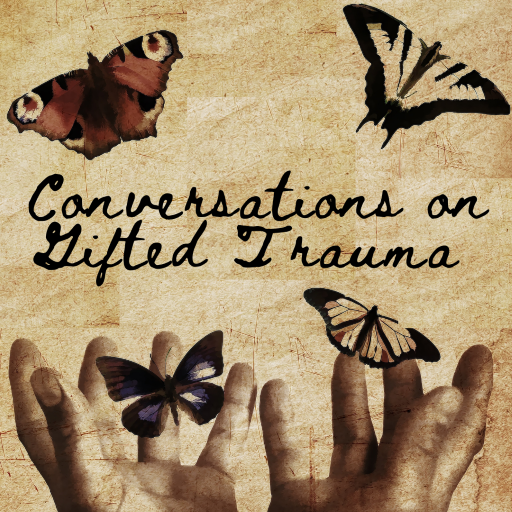


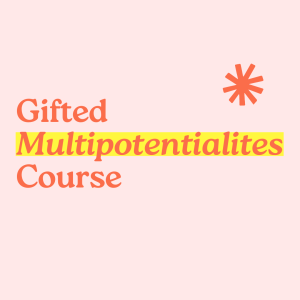

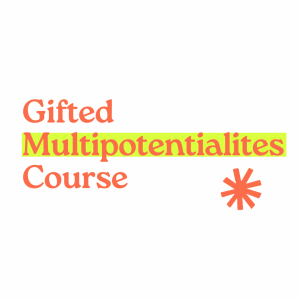
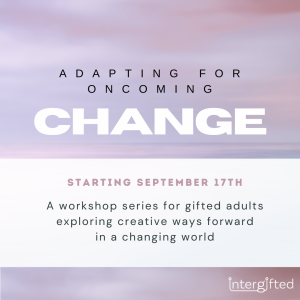
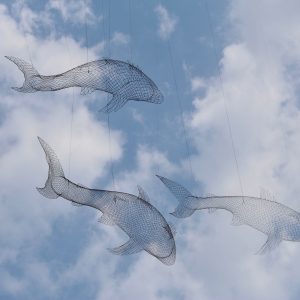
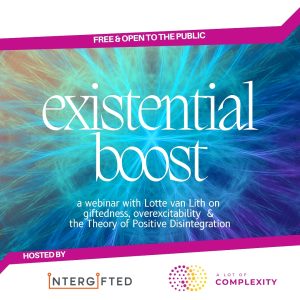

Andrea Pellegrino
Let’s see, where to start. I have had a very complicated question I’ve been pondering for years, and have asked several specialist Including geneticist and all but one blank stared me. The one who did not simply admitted she did not have an answer.
Through dealing with my own mystery of chronic health issues, and subsequently researching physiology & genetics, I learned that by enlarge metabolic processes regulate auditory processing & catecholamines regulate functions such as fluid reasoning and visual-spatial … from a battery of testing as a child I knew a tested low in auditory processing but very high both visual-spatial and fluid reasoning. I also knew from at home genetics test results cross compared to a whole slew of genetic databases that my COMT gene in theory produced a higher rate of catecholamines. …. so I started thinking about the genetic components of what actually made brains work “differently” or “quicker” and it also got me thinking about the whole 2e thinking and masking. and how strengths can hid weakness and vise versa and how some can both mask each other.
i have been tested for a collection of metabolic disorders because many of my systems appear to be related to fatty acid oxidation issues or glycogen storage … yet all the test have not show the algorithm results the doctors expect to see so things are dismissed.
I have also been aware of how I can hyper focus and almost get into a hyper engaged, hyper focused state of concentration where everything gets tuned out, and i am so focused and it’s so fun … but it drains me too.
It is not lost on me that both of these aspects deal with the way the body uses energy sources … particularly when it comes to Dabrowski’s theory of overexcitabilities.
The major question I have pondered and proposed to doctors is like how 2e traits can mask each other in terms of identify intellectual ability, can the same genetic components that control those aspects of a person mask what would be expected results in terms of physiological manifestation of diseases in the body as well.
Still pondering. Still waiting for an answer. But I LOVE that someone else is thinking about this stuff and talking about it! I thought o was alone!
Een breder perspectief op trauma bij uitzonderlijk hoogbegaafde kinderen – Uitzonderlijk Hoogbegaafd Vlaanderen
[…] Intergifted: Conversations about gifted trauma […]
Martin Cade
At least one person who needed to hear the conversation with Christiane Wells (#12) heard it. That person is me. Maybe not the educators who need to learn from this, but I needed to hear this. Thank you.
Jack Chamberlain
Make that at least two people. When she mentioned she was reading at 3 years old, she had me right then and there. My grandma would always tell me about the time she was reading a book to me when I was 3 years old, and out of nowhere, I was reading on my own. At first, she thought maybe I just memorized the page. So she turned the page to a brand new page that I hadn’t seen before, and she told me to read it. I read it. That was when she knew I was actually reading on my own at 3 years old. I’m 40 years old, and I still haven’t met one person who shares this experience, not one person who mirrors this.
Roy Willemse
After listening to podcast 13, I was toying with the metaphor of ill-fitting pants, the neuronormative mold we try to adjust to, as it captures the imbalance between the left and right sides of the distribution with regard to available tools and support (suspenders, belts, roll-ups). This toying with words culminated in this poem:
In the town of Medio,
where all seemed right and true,
stood racks of standard trousers,
worn by folks like you.
Each pair the same in measure,
every length and seam.
Promised fit so perfect,
some say like a dream.
The shorter townsfolk managed,
with rolls and clever ties;
hems tucked in, belts fastened,
some after many tries.
But in the crowd, some giants,
their fit too short and tight!
No comfort in these cloths alas,
trying as they might.
Their hairy legs, like towers thin,
stretched beyond the hem.
Ankles freezing in the wind,
while others laughed at them.
The purveyors of these pantaloons,
sadly did not sway.
They would know best, as artisans,
so theirs must be the way.
The giants laughed and chuckled,
at pants so short and tight.
Yet beneath their surface laughter,
lay a deeper plight.
Their soft complaints oft put aside,
“Stop whining, you’re just tall!”
Seeking solace far and wide,
yet finding none at all.
Worn from fighting just to be,
many may decide:
“This world has no pants for me,
I guess I’ll stay inside.”
Despair is not a fitting place,
you’re just beyond the mean.
You may look weird and that’s ok,
those ankles are made to be seen.